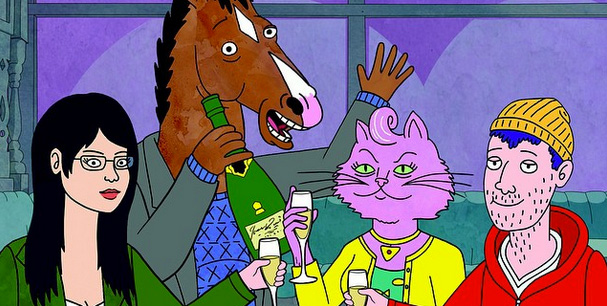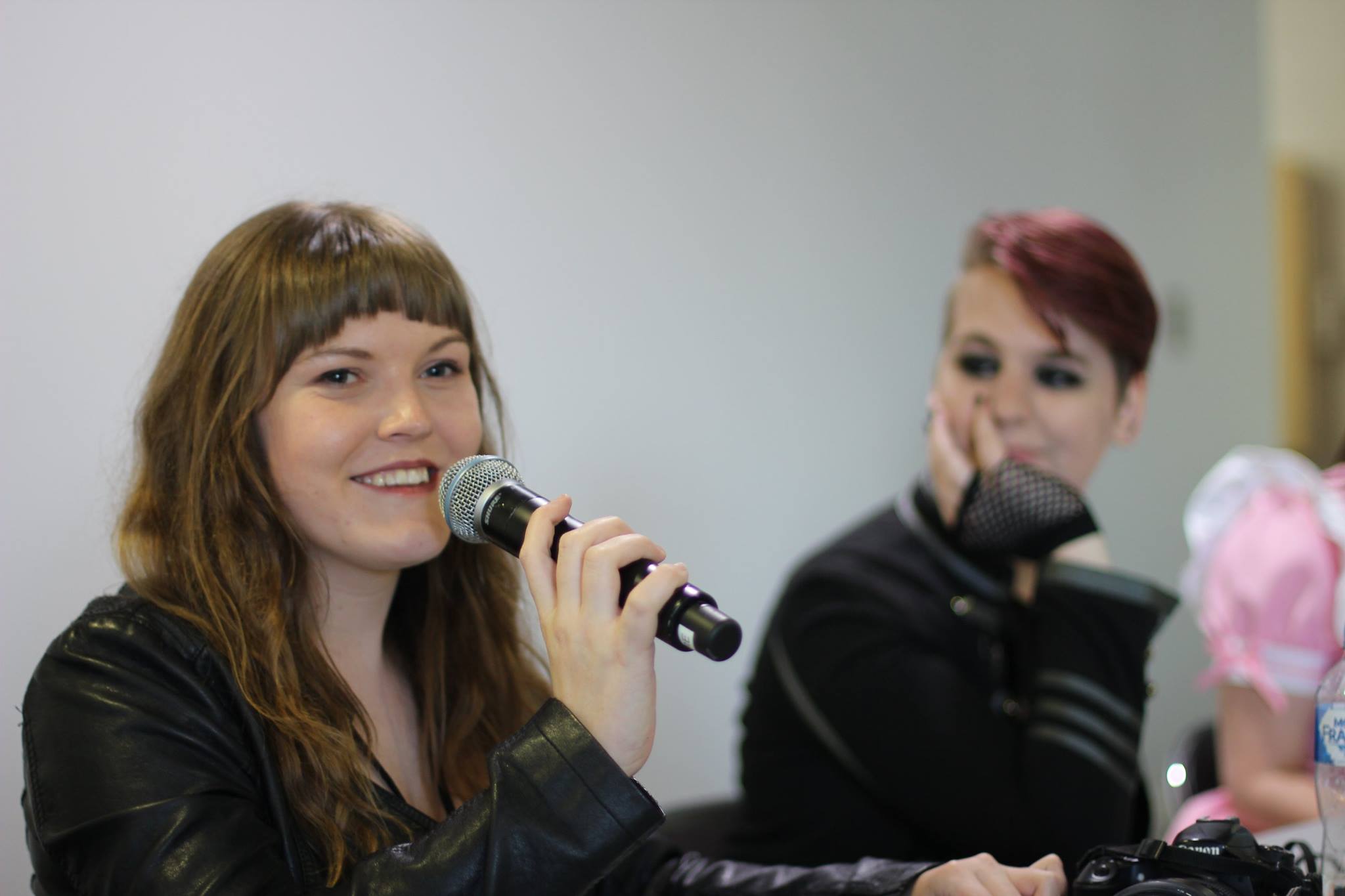
Being Something: Asexuality in BoJack Horseman
BoJack Horseman is a weird show. It treads a fine line between dark humour, satire, depression, and, though not ever-present, hope. It’s ridiculous, and, at the same time, totally and inexplicably human. That a show starring an anthropomorphic horse-man could so deftly capture human struggles could say a lot of things, but perhaps the distancing from the real world is what helps the show swerve so quickly from inane to heartfelt.
So it shouldn’t have been any surprise that BoJack would be one of the first shows to introduce one of its lead characters as asexual—though still unlabelled, and perhaps not ace, but something very close. In hindsight, it’s no surprise that BoJack would do it; at the time, however, it was jaw-dropping. Not just because of the fact it happened, but because of how it was treated.
But first, what is asexuality? It’s hard to understand entirely if you’re not asexual yourself, but it’s essentially a lack of sexual attraction, or sexual desire. It’s a spectrum, and different people can identify with different terms depending on how they feel. Grey-ace, demisexual, ace-flux—these are all terms that fall under the asexual umbrella. This doesn’t necessarily link to romantic attraction, AKA falling in love or having crushes—lacking those is aromanticism, and one does not beget the other. An asexual character does not have to live without romantic love if they’re not aromantic, that’s not how the world works.
Asexuality is easy to treat as a joke, or as a way to explain why a certain character is more robotic, less sociable. Because sex is vital to being a normal human, with normal relationships, right?
Ha. No.
In the final moments of the final episode of BoJack season 3, Todd Chavez—BoJack’s housemate and close friend—is asked by Emily, his best friend and potential romantic interest, why it sometimes feels like he likes her, and sometimes doesn’t. Throughout the entire third season, Emily clearly has romantic feelings for Todd, while he goes to great lengths to avoid being in a sexually intimate situation with her—though it seems that he likes her too.
Emily asks if Todd is gay, and he replies:
“I’m not gay. I mean, I don’t think I am, but I don’t think I’m straight either. I don’t know what I am. I think I might be nothing.“
The feeling of being nothing resonates with many aces—if you aren’t sexually attracted to any gender, then what’s left beyond that? One single line captures the feeling so perfectly, it’s almost breathtaking.
Even more amazing is Emily’s reaction to Todd opening up. Complete understanding—even if she may not completely understand—and the promise of being there to help Todd come to terms of himself.
“Well, that’s okay.”
“Yeah?”
“Yeah. Of course.”
Isn’t that what we all want to hear? That it’s okay, of course it’s okay, because that’s who you are. And—what the hell?—Bojack is the one to tell that to any aces that may be watching. There are moments in the show where people are treated with a genuine sincerity for who they are, no matter what that happens to be; this is one of those moment.
Whether or not Todd takes on the label of asexual in the new season, the fact that he’s begun his journey in the direction of understanding himself as being on that spectrum is astounding, and somehow I trust Bojack to write that in an honest and compelling way more than I would any other show.
The season finales tend to be heavy and cathartic, with a glimpse of light in the future—not just for the characters, but for the audience, too. Todd and Emily’s conversation is one that hints at hope for their stories, and for the stories of aces in the real world, too.
Header image from the BoJack Facebook page.
Like my words? Support me on Patreon!



